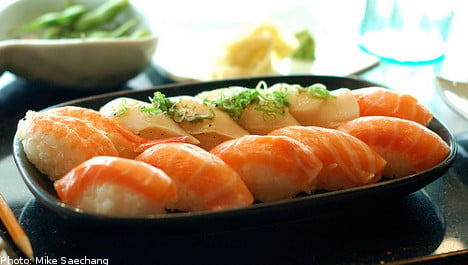“Consumers can safely eat Japanese food which is already on the market, but we want to investigate if there are elevated levels in the foods which are arriving now,” Alexander Sobestiansky at the administration said in a statement.
The authority underlined that checks do not constitute import restrictions on Japanese foodstuffs.
The checks will be performed to see if there are any traces of radioactive iodine or caesium in food products imported after March 11th, when an earthquake measuring around 9 on the Richter scale struck northern Japan.
The earthquake caused a massive tsunami which left the Fukushima Daiichi nuclear power station without power resulting in the emission of radioactive particles during the ongoing battle to cool the overheating reactors.
The Food Administration will check products which may have been exposed to radioactive fallout in the open air, such as vegetables, fruit and mushrooms, and that may have been exposed during packaging or transportation.
Foodstuffs produced and handled away from the risk of pollution and those which normally grow underground, such as beets, as well as those grown in greenhouses, are not considered to be at any risk.
According to current statistics, Japanese imports to Sweden are dominated by the following products: fish and fishing products, vegetables, confectionery, tea, cereals and soups.
Purely animal products, such as meat and fish, already go through the National Food Administration border controls and will thus be checked for iodine and caesium there.
Municipal inspection bodies will be responsible for checking products at firms which import products from Japan, the state authority advised.
The administration also urged importers to ensure that their products do not pose any risk to consumers by demanding the results of soil tests from Japanese authorities and that they conduct checks when the goods arrive in Sweden.
The National Food Administration did not rule out the introduction of import restrictions on Japanese products in the future, explaining that Sweden will follow EU recommendations and decisions.
According to the first measurements conducted in Stockholm since the earthquake, the city’s air has not registered any heightened levels of radioactive substances.
The Defence Research Agency (Totalförsvarets forskningsinstitut – FOI) carried out the tests on Monday-Tuesday in Kista in northern Stockholm on behalf of the Radiation Safety Authority (Strålsäkerhetsmyndigheten – SSM).



 Please whitelist us to continue reading.
Please whitelist us to continue reading.
Member comments